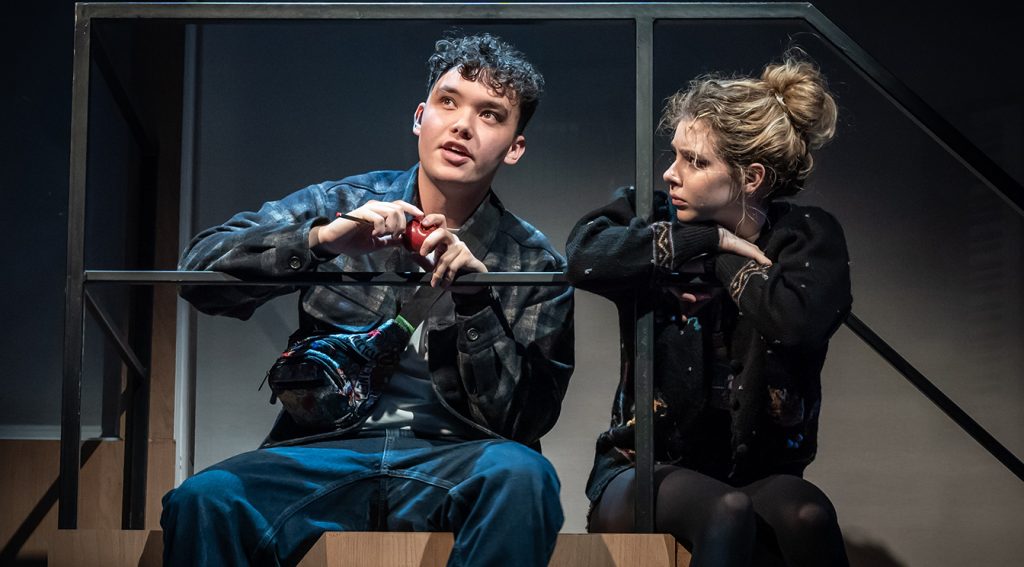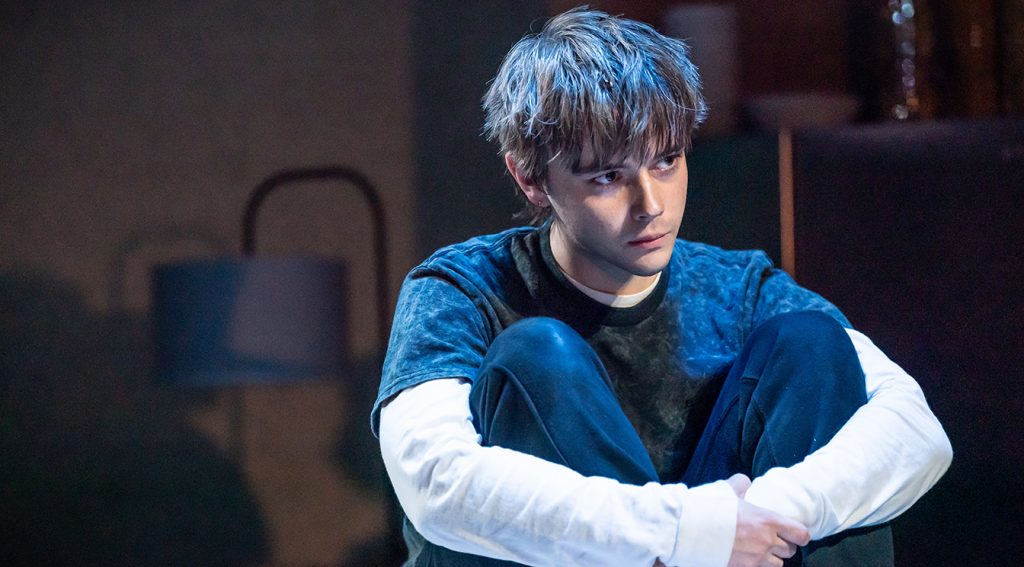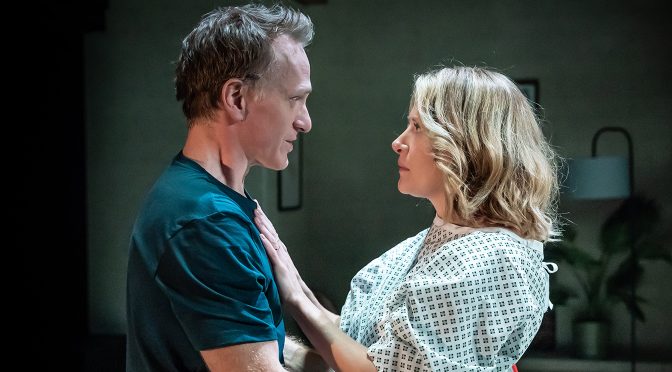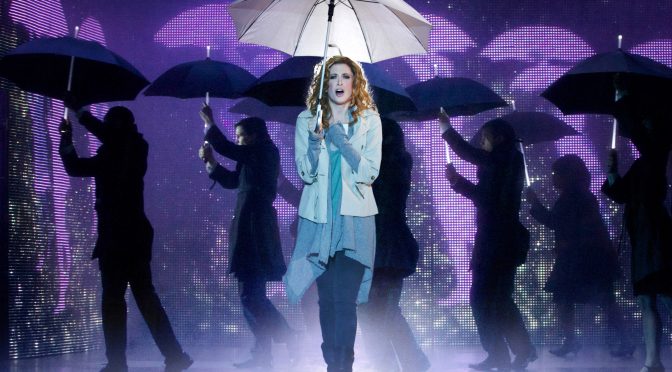Fifteen years after success in New York, this hard-hitting musical from Brian Yorkey and Tom Kitt has a London première to be proud of. Under the musical direction of Nick Barstow, the show sounds great while director Michael Longhurst excels in sensitivity. The performances are superb, among the best I’ve seen in a long time. In fact, the production is so strong that it might be better than the show itself.
Next to Normal’s subject matter is mental illness. The lead protagonist, Diana, suffers from bipolar disorder; we see her treatment with drugs, therapy and even ECT. As if that weren’t emotive enough, Diana’s problems are connected to the death of her baby son Gabe who, imagined grown, haunts her as a psychotic hallucination.
It’s an important topic, although obviously not one that is easy to watch, let alone perform – Caissie Levy, who takes this lead role, is a marvel and her voice is excellent. Of course, there’s plenty of angst in her songs, but the score also has variety and Levy manages to inject surprisingly light touches. This is a woman living with her illness, who – making sandwiches and looking after the family – has to carry on… somehow. The detail in the performance, as with the care in Yorkey’s book, feels authentic and engaging.
The show only gets more impressive because the focus is almost as much on Diana’s family as her. More detail – a lot of it distressing – comes with the always-excellent Jamie Parker, who plays the husband. And there’s Diana’s daughter, Natalie, who ironically feels like an “invisible girl” and has plenty of problems of her own.

Eleanor Worthington-Cox takes the role of Natalie and is joined by Jack Wolfe as her deceased brother. It is a huge testament to both, that, despite how fraught the piece is, they show their roles as, somehow, regular teenagers. Given that one isn’t real, that really is remarkable! Completing a trio of younger performers is Jack Ofrecio, who plays Natalie’s boyfriend and is also excellent. The level of sophistication in both music and lyrics is consistent for these roles and the performances just as good.

Next to Normal is far from a teen drama, but the depictions of youth are extraordinary. The pressures on all three younger characters, particularly interesting when we consider one as a figment of an older person’s imagination (who even gets the best number), raise questions about nature and nurture. While showing the impact of long-term illness, Natalie and her beau have regular problems, too. It all adds up to great drama.
Up until the end, it is all pretty much faultless – if hard-going. And resolving a story like this is always going to be a problem, especially given how in-depth and intense the show is. Maybe we should be grateful the end isn’t tragic… but Diana’s decision to abandon treatment is a shock. While she considers giving up medication more than once, the final decision to reject help seems reckless to the point of being disturbing. Maybe it is best to point out that it doesn’t quite make sense dramatically. It’s an odd end to a fantastic show.
Until 7 October 2023
Photos by Marc Brenner


